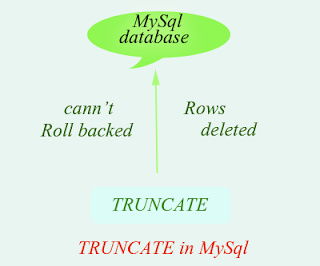Normally you can use order by before group by in mysql. Now the question is rise, can you use order by before group b in mysql? Yes you can use order by before group by in mysql. It is possible. You've to use subquery for this. ie,
SELECT * FROM (
SELECT * FROM `table` ORDER BY column_name DESC
) t
GROUP BY column_name
Where,
t is alias because you use subquery. If you don't add it, then you'll get error message "Every derived table must have its own alias".
SELECT * FROM `table1` ORDER BY count DESC
) t
GROUP BY id
where,
SELECT * FROM `table1` ORDER BY count DESC run first. It ordered the data in descending order by count.
SELECT * FROM ( ... ) t GROUP BY id it takes unique values.
Now you'll get output like this:
Now you'll get id with highest count values.
Related Post:
SELECT * FROM (
SELECT * FROM `table` ORDER BY column_name DESC
) t
GROUP BY column_name
Where,
t is alias because you use subquery. If you don't add it, then you'll get error message "Every derived table must have its own alias".
Group by in Mysql:
Consider the following table. table1 is name of this table.
Now we are going to get unique values in column 'id' by 'GROUP BY' mysql command like this:
SELECT * FROM table1 GROUP BY id
Now you'll get output like this:
You can see the column 'id' values in mysql table 'table1' are unique. The id value 1 are present 1st, 2nd and 5th row. But it takes only the first row.
On above example, you want to select highest count of each id and id should be unique. Then you have to use subquery to select highest count values. The mysql query as follows as:
SELECT * FROM (SELECT * FROM table1 GROUP BY id
Now you'll get output like this:
You can see the column 'id' values in mysql table 'table1' are unique. The id value 1 are present 1st, 2nd and 5th row. But it takes only the first row.
Use order by before group by:
SELECT * FROM `table1` ORDER BY count DESC
) t
GROUP BY id
where,
SELECT * FROM `table1` ORDER BY count DESC run first. It ordered the data in descending order by count.
SELECT * FROM ( ... ) t GROUP BY id it takes unique values.
Now you'll get output like this:
Now you'll get id with highest count values.
Related Post:
Change column name in mysql
Change column size in mysql table
Delete column in mysql table
Add column after specific field in mysql table
Move columns in mysql table
Change column size in mysql table
Delete column in mysql table
Add column after specific field in mysql table
Move columns in mysql table
change column datatype in mysql
Change table name in mysql
Add primary key to existing column in mysql
how to add auto increment to existing column in mysql
How to select distinct value in mysql
Change table name in mysql
Add primary key to existing column in mysql
how to add auto increment to existing column in mysql
How to select distinct value in mysql


























